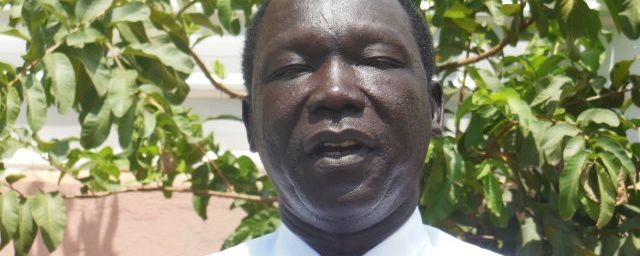Eastern Equatoria State is facing a shortage of drugs and medical personnel, amid displacement of tens of thousands of people to the state, according to a health official.
Dr. Elijo Omoro Tahir, Director General of the State Ministry of Health, in an interview Monday said the biggest challenges in his state are the shortage of medical officers and drugs.
“We really don’t have enough drugs and also we have not been able to staff the facilities,” he told Radio Tamazuj, citing shortages of medical clinical officers, midwives and laboratory assistants.
Eastern Equatoria State has received an influx of people fleeing conflict-affected neighboring states. According to the UN, the number of displaced in the state is approximately 65,000. Omoro says there are not enough facilities for the IDPs.
He explained that his ministry has raised a request to the national health ministry for emergency supply of drugs. Some drugs were issued last week for distribution to Kapoeta, Torit and Nimule, but Omoro says these drugs were not enough to reach to the other primary health centers.
“The basic thing we need the national ministry of health to do is to procure medicine and to distribute them through the central medical stores as they used to do in the past. You know, the last round we received in January 2013, which is over a year ago,” stated the official.
The director general also urged new graduates in medical professions, such as clinical officers, nurses and midwives to accept to carry out their work in the counties and rural areas.
Asked about the reported drugs shortage, the undersecretary in the national health ministry, Dr Makur Maker, said people should not panic because the ministry is currently procuring more drugs to fill the gaps.
“Yes, it is true that there are a few complaints here and there about supply of drugs to the other states, but of course the nature of our operations at the moment shows that we are able to address the emergency situation, and on that we are been very successful,” Makur said.
He acknowledged that there have been occasional interruptions to the regular supply of drugs to the other states. But he pointed out that essential medicines were sent to many states including Eastern Equatoria less than three weeks ago.
Makur noted also that the ministry is currently pre-positioning anti-malaria drugs in the states to address the demand which is expected to increase during the rainy season particularly from June to November.
Photo: Dr. Makur Maker, Undersecretary of the Ministry of Health, South Sudan, 24 March 2014 (Radio Tamazuj)




